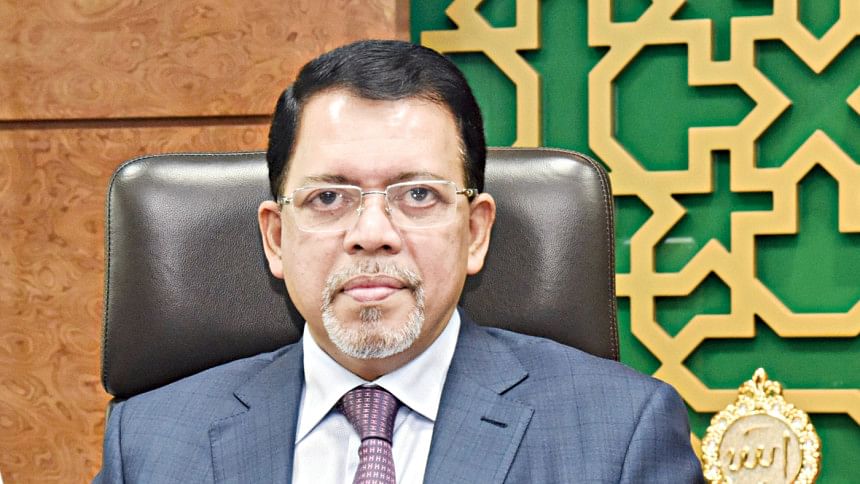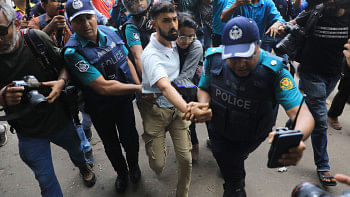Building trust through transparency

Farman R Chowdhury
Managing Director
Al-Arafah Islami Bank
The Daily Star (TDS): How is Bangladesh progressing towards a cashless society?
Farman R Chowdhury (FRC): The journey of transitioning to a cashless ecosystem is still in its early stages. Although there are a number of mobile financial services that have revolutionised digital payments in Bangladesh, the government has also been actively promoting digital payments through various policies and initiatives. Bangladesh has been making gradual and steady progress in its transition to a cashless society, driven by government initiatives, technological advancements, and increasing digital literacy. However, overcoming the inherent challenges related to infrastructure, public trust, and accessibility will be critical for achieving widespread adoption. With continued efforts and investments, Bangladesh has the potential to significantly reduce its reliance on cash in the coming years.
TDS: What innovative steps has Al-Arafah taken to accelerate the shift towards a cashless economy, and how have these impacted customers?
FRC: Al-Arafah Islami Bank has taken several innovative steps to accelerate the shift towards a cashless economy, leveraging technology to enhance customer convenience and financial inclusion. These initiatives have had a positive impact on customers, making banking more accessible, secure, and efficient. Not only that, but these initiatives also align with the broader vision of Digital Bangladesh and aim to enhance customer convenience, financial inclusion, and operational efficiency. As the bank continues to innovate and address existing challenges, it is well-positioned to play a key role in Bangladesh's transition to a cashless society. AIB has introduced mobile banking, internet banking, an agent banking network, QR code-based (Bangla QR) payment systems, contactless debit and credit cards, partnerships with fintech companies, SMS banking alerts, Islami Wallet, and so on. There are other services also in the pipeline, to be launched soon. As far as the impact on customers is concerned, these have certainly enhanced convenience by providing improved security and faster, less costly transactions. As we proceed to include more and more unbanked people into our digital network, we ensure greater transparency for our customers, which helps us create a bond of trust between the bank and its customers.
TDS: What policies or government initiatives do you believe are crucial for making the transition to a more secure, inclusive, and widely adoptable ecosystem?
FRC: No "one size fits all" kind of initiative will work to create a secure, inclusive, and widely adoptable cashless society. As far as I am concerned, there has to be a combination of regulatory, infrastructural, and educational initiatives to address the challenges of digital literacy, cybersecurity, accessibility, and trust. The enactment of comprehensive cybersecurity laws, data privacy regulations, real-time monitoring, and fraud detection, improved and faster internet connectivity, power supply reliability, affordable smartphones and devices, public awareness campaigns, digital literacy programmes, partnerships with NGOs and the private sector, incentivising digital payments through tax incentives and cashback rewards, and effective use of AI are just a handful of crucial issues. In a nutshell, a secure, inclusive, and widely adoptable transition to a cashless society requires a holistic approach involving regulatory reforms, proper and adequate investment in infrastructure development, and public awareness to ensure a smooth and faster transition to a cashless ecosystem.

 For all latest news, follow The Daily Star's Google News channel.
For all latest news, follow The Daily Star's Google News channel. 



Comments